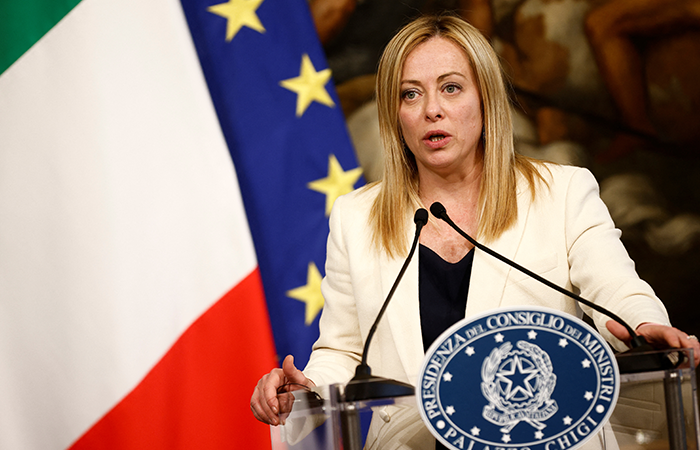By Niccolò Comini, 8 February 2024

Italian Prime Minister Giorgia Meloni (photo credit: AEI)
Italian Prime Minister Giorgia Meloni and her party Fratelli d’Italia shocked voters by the end of last year after announcing a plan for an ambitious constitutional reform. Meloni’s party’s sustained majority gives them confidence in the move, which aims at fundamentally restructuring the country’s government through the direct election of the Prime Minister. Nonetheless, as is the case with previous attempts, constitutional change is not what Italy needs.
Touted as the “mother of all referendums” by Meloni due to its sweeping changes, the planned referendum aims at stability by prolonging the tenure of governments — an argument that has ground considering that Italy has had 13 different ruling government coalitions since 2000. The focus of the referendum is to concentrate more power in the hands of the executive by having the prime minister be directly elected by the people and once elected be ensured control of 55% of the parliamentary seats. Furthermore, the referendum would establish a five-year term limit that would align with parliamentary elections. In effect, the hope is to build unity and continuity. The cost is checks and balances. [...] The proposed transformation of Italy’s political structure to a stronger, directly elected executive could mark a tectonic shift from its parliamentary roots toward a presidential system akin to that of France. This evolution offers a tantalizing promise: the enfranchisement of the electorate, affording citizens a direct voice in choosing their head of state, ostensibly eliminating the political middleman. The allure of such a system lies in the amplification of popular sovereignty, thereby imbuing national policy with the unadulterated will of the people.
Yet, the sheen of this proposition belies a more intricate and potentially perilous reality. The concentration of power within the executive, particularly when justified by the pursuit of governmental stability, invites scrutiny. It carries the risk of eroding the checks and balances essential to a robust democracy. As Edmund Burke, the venerated sage of political wisdom, once articulated, prudence is the linchpin of political integrity — serving as both guide and guardian. By expanding executive authority, there is a risk of sidelining this cardinal virtue, potentially at the peril of the republic’s health.
Read the full article here:
International Policy Digest
